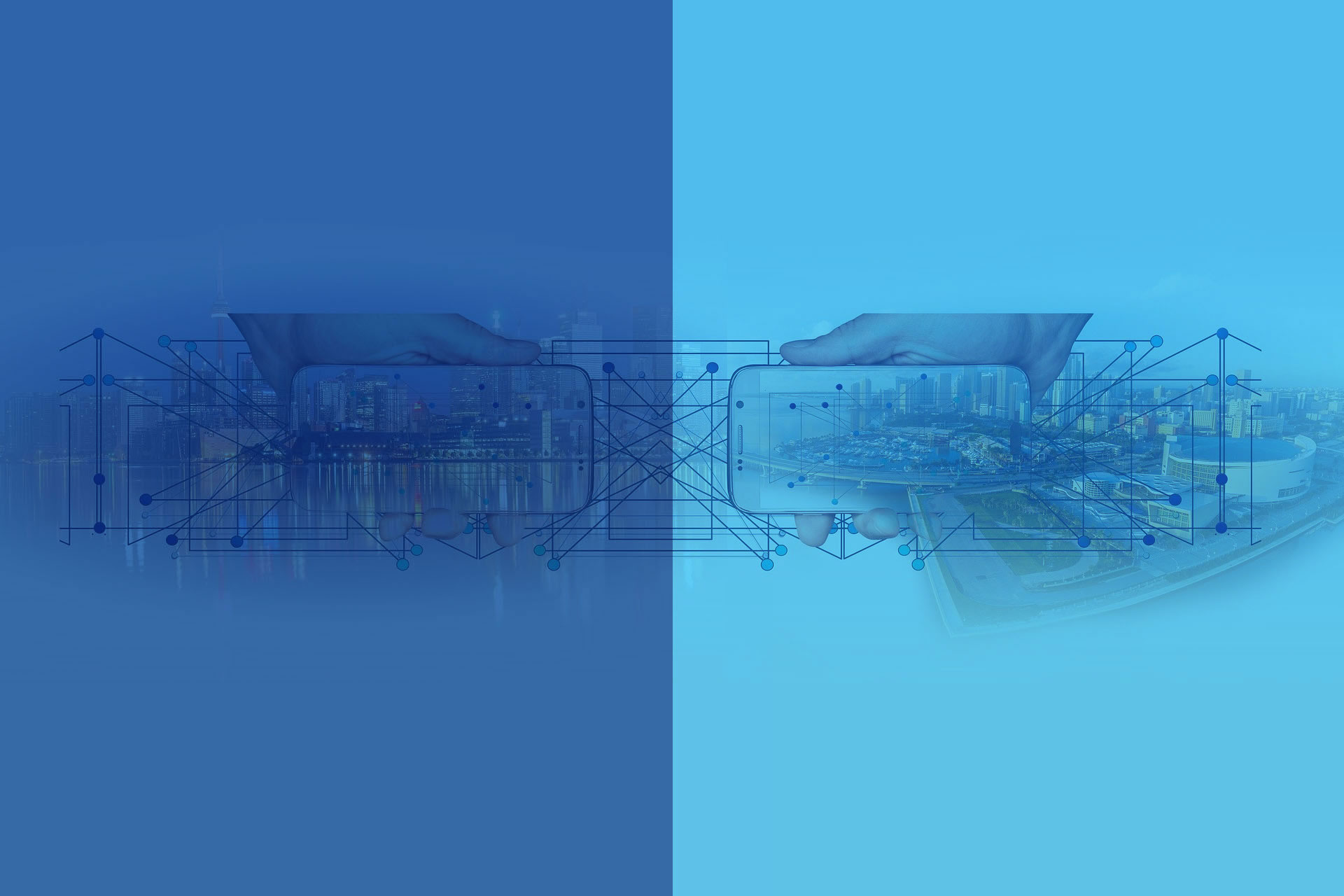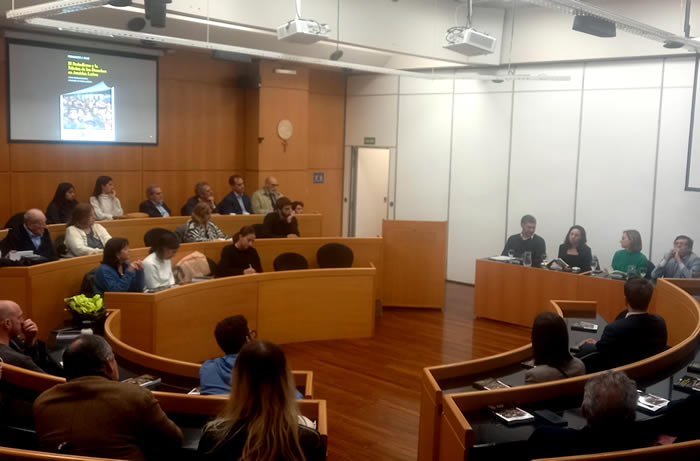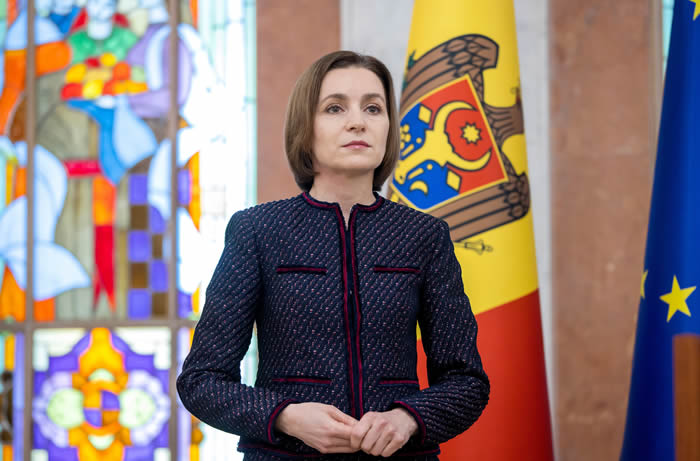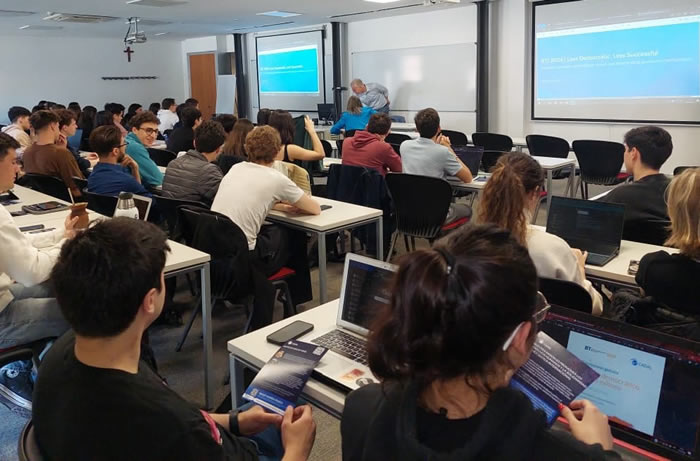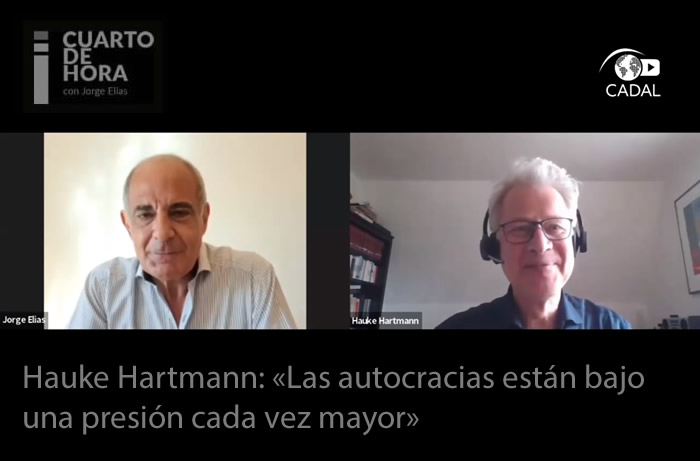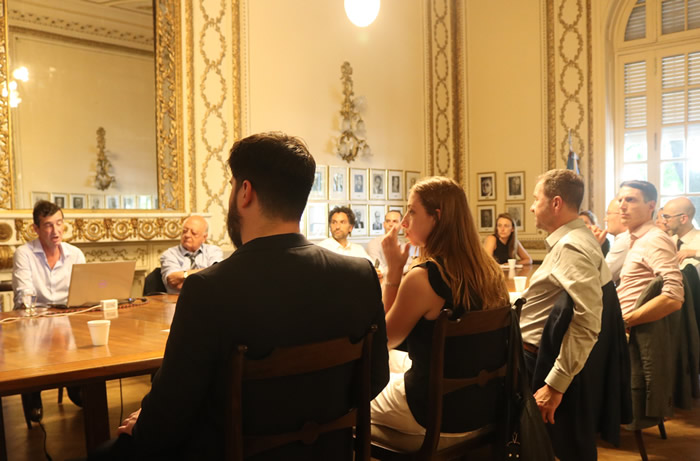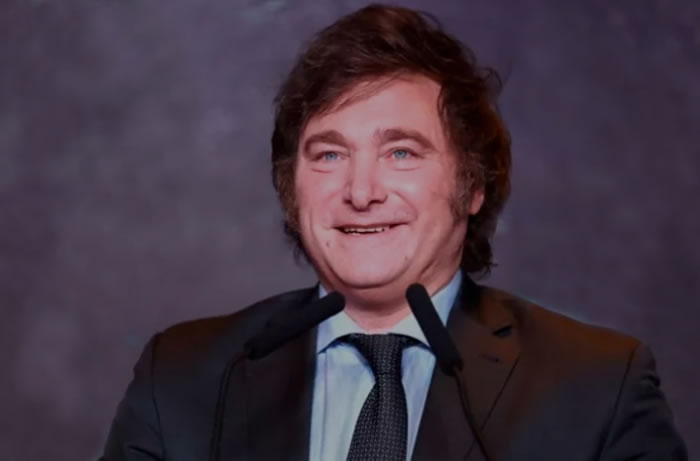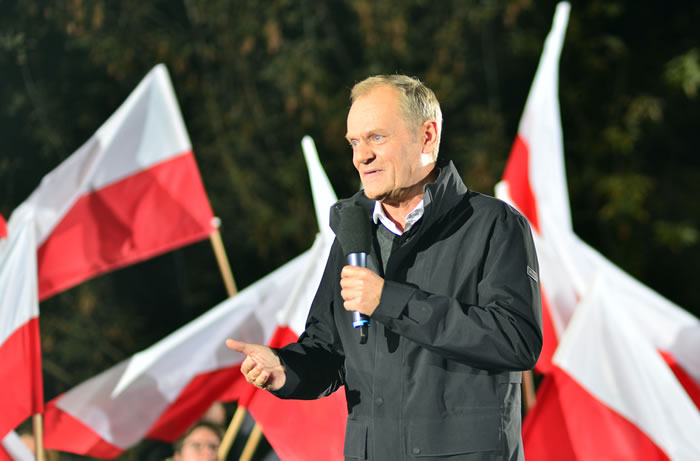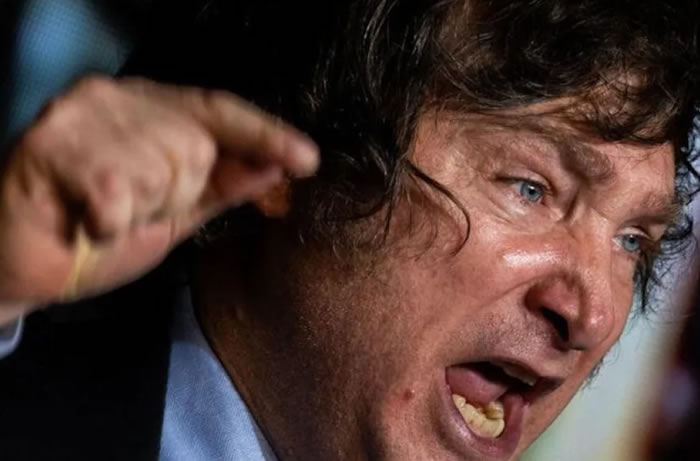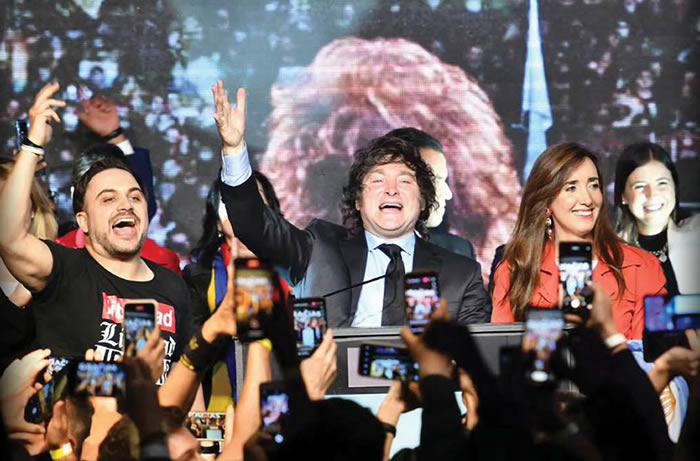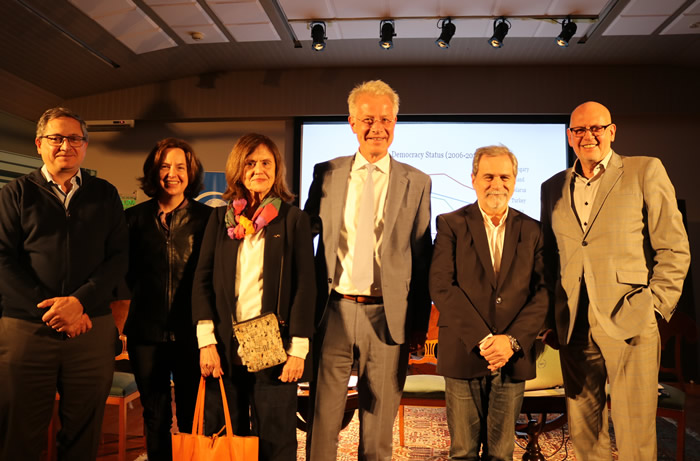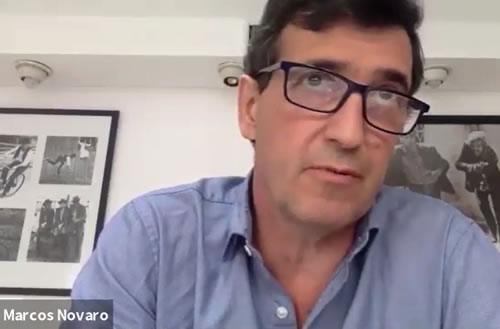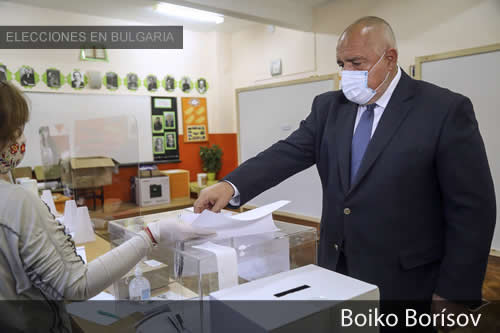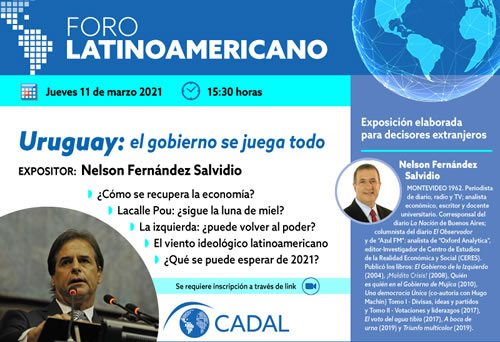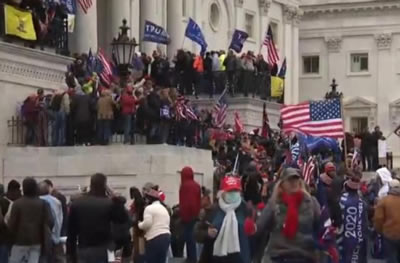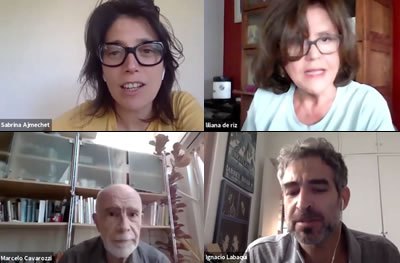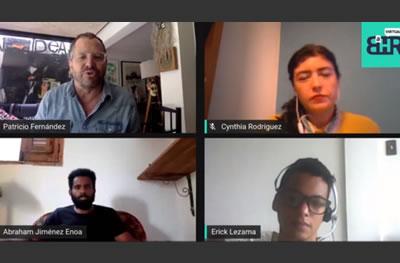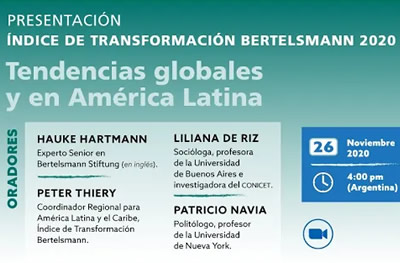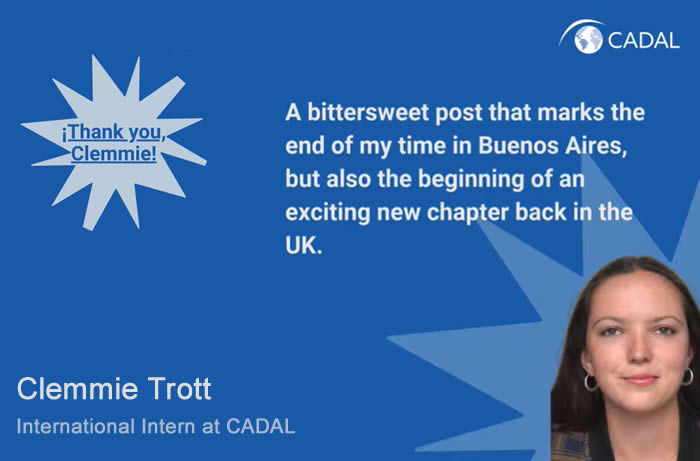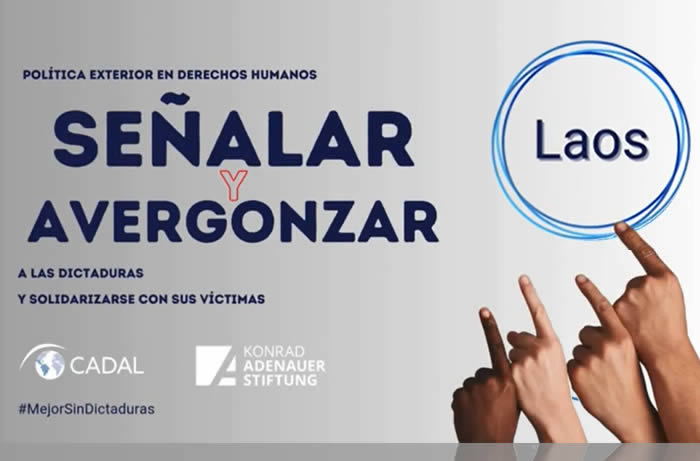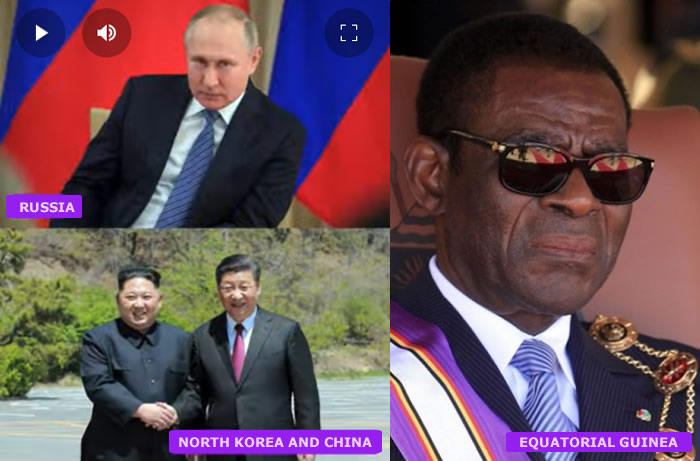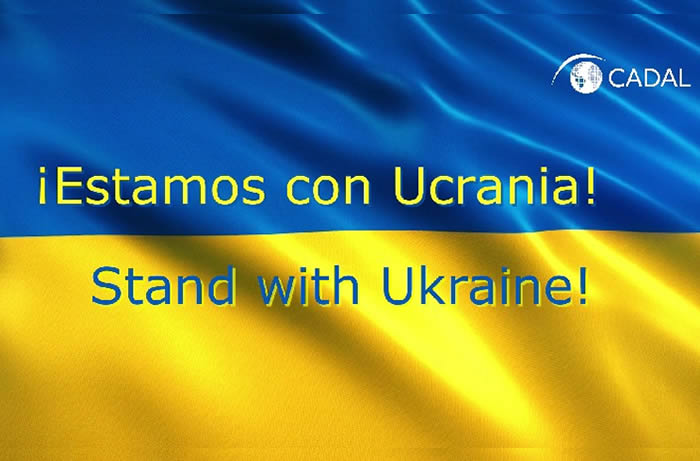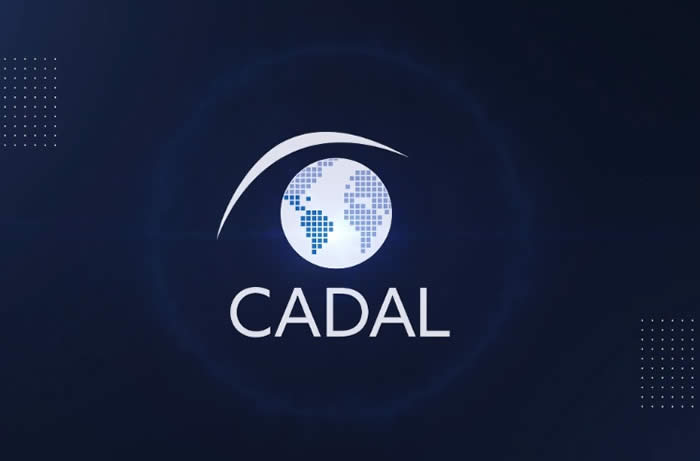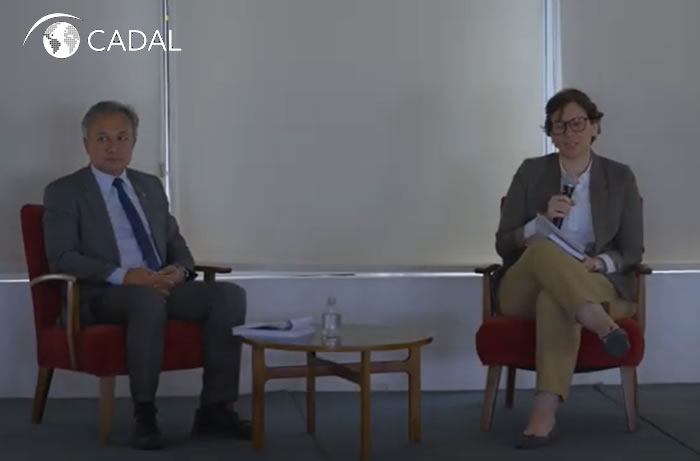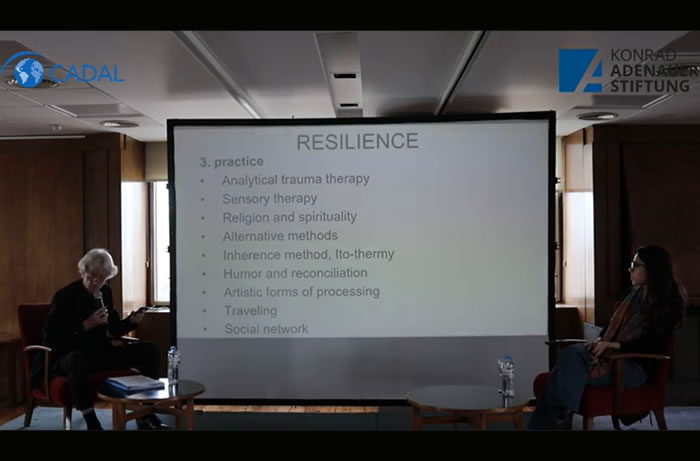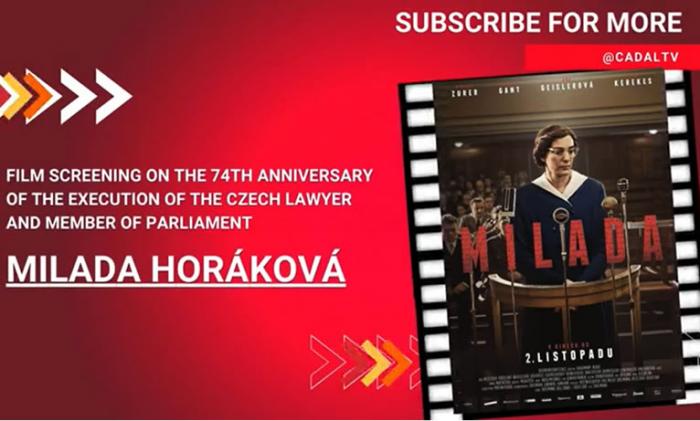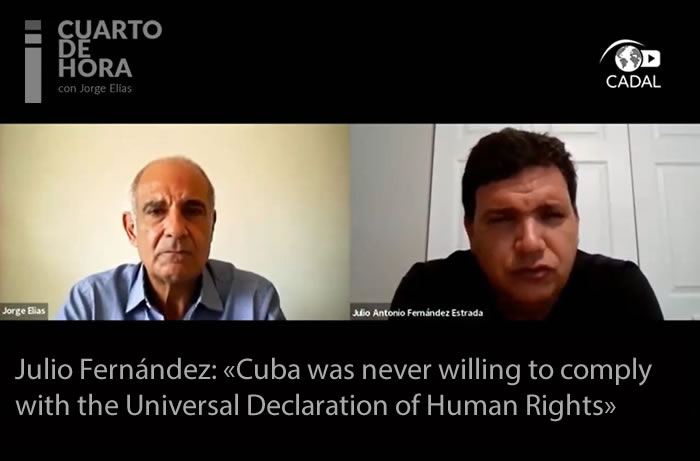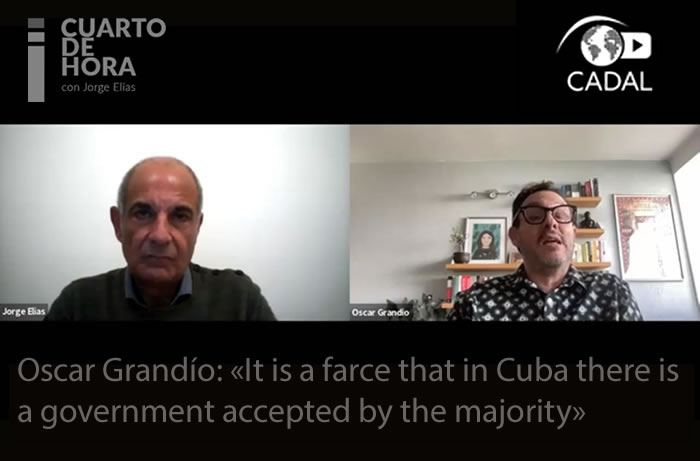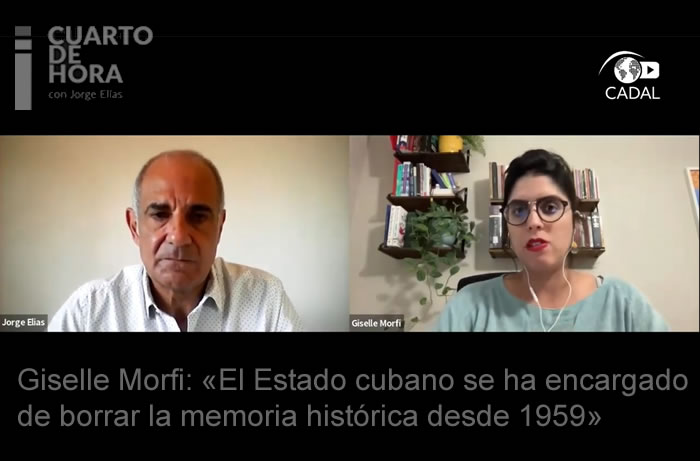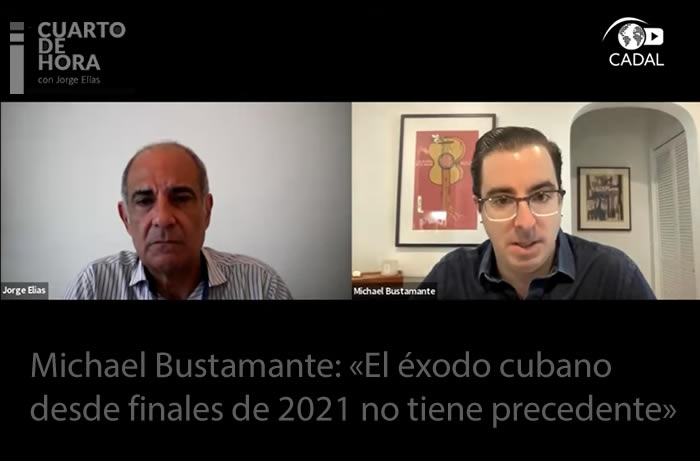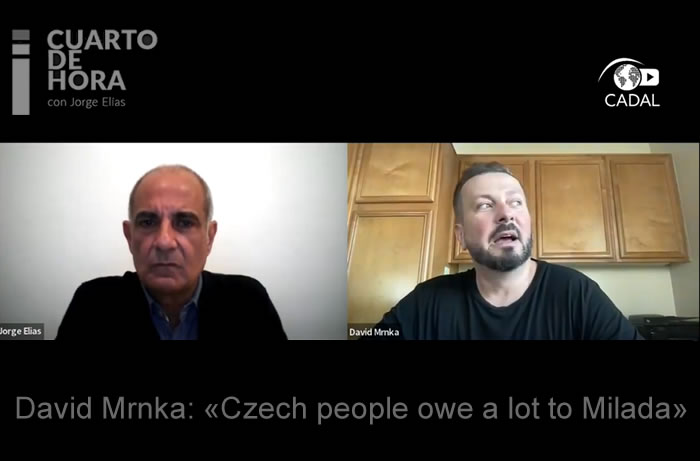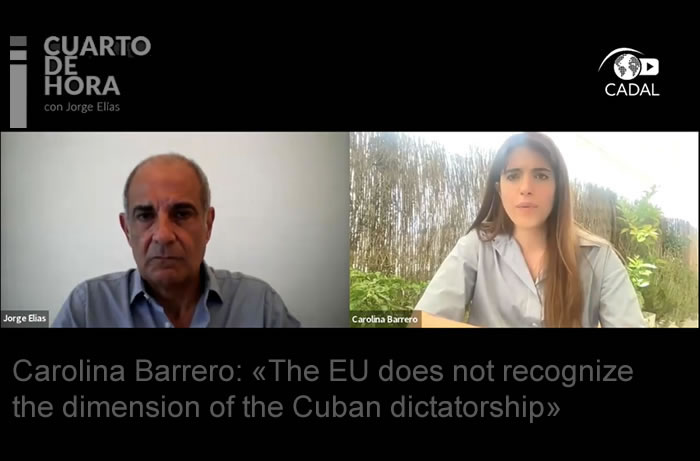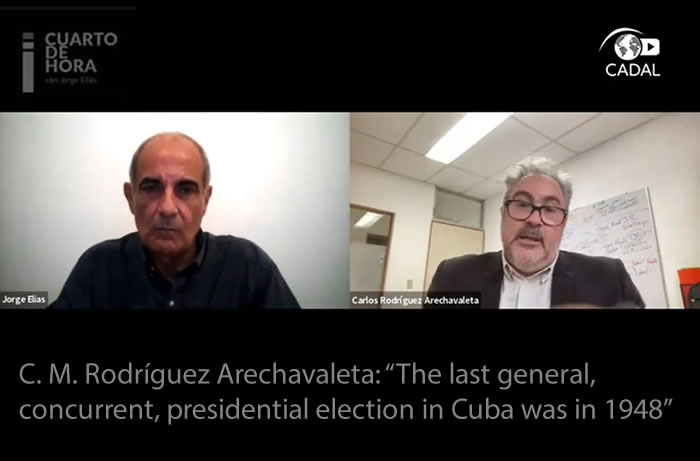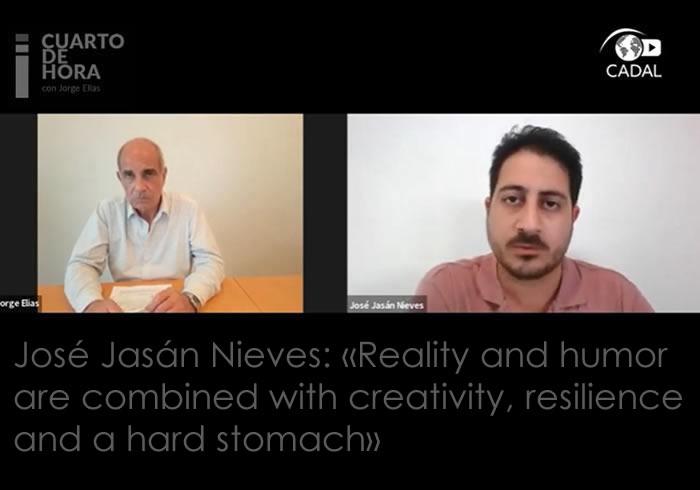Articles
Monitoring of democratic governance
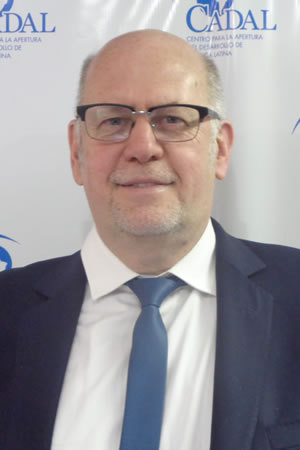 11-03-2010
11-03-2010The Day Mr. K died
International customs, Buenos Aires airport, Argentina, noon, october 27. I turn on my cell phone and the message ''Kirchner dead'' appears. It takes me a while to fully grasp it, and when I do, I look around and begin to feel a mixture of tense calm and bewilderment among the customs officials. A lot of things run through my head during these minutes. It had been a long time since I had felt this particular sense of contained crisis that I have experienced so many times in this country.
By Raúl Ferro
International customs, Buenos Aires airport, Argentina, noon, october 27. I turn on my cell phone and the message "Kirchner dead" appears. It takes me a while to fully grasp it, and when I do, I look around and begin to feel a mixture of tense calm and bewilderment among the customs officials. A lot of things run through my head during these minutes. It had been a long time since I had felt this particular sense of contained crisis that I have experienced so many times in this country. But what hit me hardest was an intense feeling of déjà vu. July 1, 36 years ago, sprang to mind. At school in Cordoba, I heard the news of the death of then-president Juan Domingo Peron and was plunged into the uncertainty that flooded all of Argentina when his widow, Maria Estela Martinez de Peron, known as Isabelita, took over.
It's true that many things have changed since that winter. At that time, Argentina was just coming out of a succession of failed military governments and the battle for political power was still being fought with blood, bullets and bombs. The president, a cabaret dancer, was far from being a professional political leader like current president Cristina Fernandez, Kirchner's widow as of Wednesday.
But beyond these differences, worrisome parallels jump out. Despite government officials' repeated declarations - repeated so many times that they have become suspicious - regarding Cristina's autonomy, the general perception is that the president's deceased husband was the one pulling the strings. After almost 30 years of democracy, Argentina's weak institutional framework remains one of the nation's most serious problems. Just like in July 1974, when Peron died, uncertainty about who will take power behind the scenes at the presidential palace known as the Casa Rosada is spreading through the streets of Buenos Aires. Eyes are not on congress, but rather on Hugo Moyano, the ultra-powerful leader of Argentina's workers union confederation CGT, and the self-serving but powerful Peronist party, a huge shell founded by Peron in the middle of the last century that brings together political forces of any nature with the indefinable common denominator of belonging to the Peronist movement. In other words, in today's Argentina, political authority doesn't go through state institutions, as it ought to, but through the dark twists and turns of parallel powers.
That is the greatest weakness of a country which, despite everything, still has the opportunity to head off in the right direction. The question is whether remolding political power in Argentina will lead to that path. When Nestor Kirchner had the courage - taking a great risk to his incommensurable political ambition - to assume power in Argentina in the midst of one of the worst economic crises and a power vacuum in the already unstable country, he had a great opportunity. He succeeded with the urgent and essential task of restoring political authority to the presidency and sorting out the economic chaos that Argentina struggled with after the corralito or deposit freeze and huge devaluation in 2002. But his obsession with maintaining and concentrating political power, historically rather elusive in Argentina, led him to avoid making the reforms the country was screaming for. Yes, the Argentine economy is growing vigorously, but it is driven by public spending that does nothing more than deepen the structural macroeconomic imbalances afflicting the country. The strong external demand for raw materials is very good for Argentina. Despite time wasted by the deceased former president and his successor and widow, this means that the country still has the chance to undertake the reforms needed to get on the bandwagon of sustainable grown, along with neighbors such as Chile and Brazil.
Threatening this possibility today is the political void left by the death of Kirchner. The long battle ahead to control the Peronist party and win the favor of the current president will leave little political capital to carry out necessary but unpopular measures. However, it's also true that with the collapse of the power structure the former president built around himself, whoever takes the reins - bets are on for the moderate governor of Buenos Aires province, Daniel Scioli, or Eduardo Duhalde, who had a brief stint in the Casa Rosada during the crisis years - has the chance to start from scratch and carefully and skillfully begin the delicate task of rebuilding Argentina's institutional framework and correcting the gross imbalances that threaten the long-term stability of the country's economy.
Text translated from Spanish by Alexandra Demo-Dananberg.
 Raúl FerroAdvisory CounselorLatin America bussines and economics analysis specialist. Foreign correspondent in South America for American and British economics media. He directed America Economía magazine. He is Director of the CADAL Advisory Council.
Raúl FerroAdvisory CounselorLatin America bussines and economics analysis specialist. Foreign correspondent in South America for American and British economics media. He directed America Economía magazine. He is Director of the CADAL Advisory Council.
International customs, Buenos Aires airport, Argentina, noon, october 27. I turn on my cell phone and the message "Kirchner dead" appears. It takes me a while to fully grasp it, and when I do, I look around and begin to feel a mixture of tense calm and bewilderment among the customs officials. A lot of things run through my head during these minutes. It had been a long time since I had felt this particular sense of contained crisis that I have experienced so many times in this country. But what hit me hardest was an intense feeling of déjà vu. July 1, 36 years ago, sprang to mind. At school in Cordoba, I heard the news of the death of then-president Juan Domingo Peron and was plunged into the uncertainty that flooded all of Argentina when his widow, Maria Estela Martinez de Peron, known as Isabelita, took over.
It's true that many things have changed since that winter. At that time, Argentina was just coming out of a succession of failed military governments and the battle for political power was still being fought with blood, bullets and bombs. The president, a cabaret dancer, was far from being a professional political leader like current president Cristina Fernandez, Kirchner's widow as of Wednesday.
But beyond these differences, worrisome parallels jump out. Despite government officials' repeated declarations - repeated so many times that they have become suspicious - regarding Cristina's autonomy, the general perception is that the president's deceased husband was the one pulling the strings. After almost 30 years of democracy, Argentina's weak institutional framework remains one of the nation's most serious problems. Just like in July 1974, when Peron died, uncertainty about who will take power behind the scenes at the presidential palace known as the Casa Rosada is spreading through the streets of Buenos Aires. Eyes are not on congress, but rather on Hugo Moyano, the ultra-powerful leader of Argentina's workers union confederation CGT, and the self-serving but powerful Peronist party, a huge shell founded by Peron in the middle of the last century that brings together political forces of any nature with the indefinable common denominator of belonging to the Peronist movement. In other words, in today's Argentina, political authority doesn't go through state institutions, as it ought to, but through the dark twists and turns of parallel powers.
That is the greatest weakness of a country which, despite everything, still has the opportunity to head off in the right direction. The question is whether remolding political power in Argentina will lead to that path. When Nestor Kirchner had the courage - taking a great risk to his incommensurable political ambition - to assume power in Argentina in the midst of one of the worst economic crises and a power vacuum in the already unstable country, he had a great opportunity. He succeeded with the urgent and essential task of restoring political authority to the presidency and sorting out the economic chaos that Argentina struggled with after the corralito or deposit freeze and huge devaluation in 2002. But his obsession with maintaining and concentrating political power, historically rather elusive in Argentina, led him to avoid making the reforms the country was screaming for. Yes, the Argentine economy is growing vigorously, but it is driven by public spending that does nothing more than deepen the structural macroeconomic imbalances afflicting the country. The strong external demand for raw materials is very good for Argentina. Despite time wasted by the deceased former president and his successor and widow, this means that the country still has the chance to undertake the reforms needed to get on the bandwagon of sustainable grown, along with neighbors such as Chile and Brazil.
Threatening this possibility today is the political void left by the death of Kirchner. The long battle ahead to control the Peronist party and win the favor of the current president will leave little political capital to carry out necessary but unpopular measures. However, it's also true that with the collapse of the power structure the former president built around himself, whoever takes the reins - bets are on for the moderate governor of Buenos Aires province, Daniel Scioli, or Eduardo Duhalde, who had a brief stint in the Casa Rosada during the crisis years - has the chance to start from scratch and carefully and skillfully begin the delicate task of rebuilding Argentina's institutional framework and correcting the gross imbalances that threaten the long-term stability of the country's economy.
Text translated from Spanish by Alexandra Demo-Dananberg.

